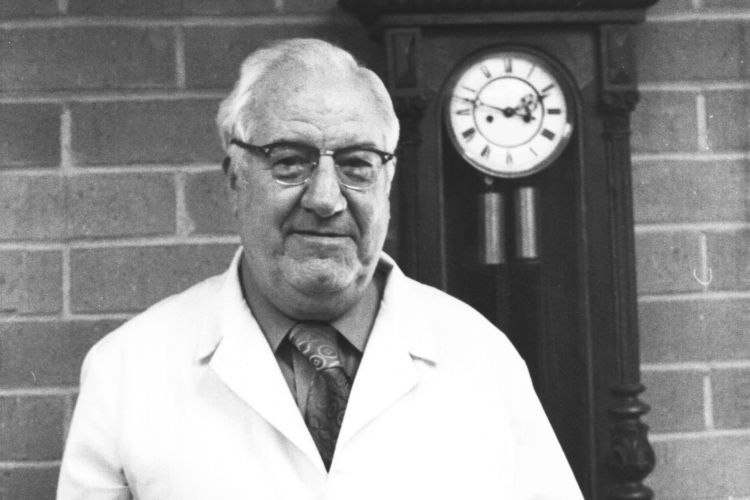Breadcrumb
Top five reasons to become a pharmacist
There are many worthwhile reasons for students to pursue a doctor of pharmacy (PharmD) degree. It is a rewarding career, one that allows pharmacists to enjoy the satisfaction and pride that comes with helping others while challenging themselves in a variety of important ways. Pharmacists not only work with patients to ensure they understand the medications they have been prescribed, but they also get to collaborate with others as part of a larger health care team. A degree in pharmacy also can be a pathway to specialties like geriatric or pediatric care or a focus on research.
Whatever the reasons that inspire PharmD students to choose their career path, they can know that becoming a pharmacist is an honorable and important way to make a living. Pharmacists consistently rank among the most honest and ethical professionals.

Let’s take a closer look at the top five reasons to become a pharmacist:
Making an impact
Helping others is one of the most common goals that motivates people to become pharmacists. Pharmacists often see people on their worst days — when they are sick or injured or are experiencing some other health-related event. At these times, the best pharmacists offer empathy and compassion as well as a trusted voice that gives people confidence and reassurance.
Pharmacy is challenging
A career in pharmacy offers an excellent way to apply cutting edge clinical science to help individuals and communities improve their health. To earn a PharmD degree, one must meet the pharmacy prerequisites and then complete extensive education and training to ensure prescription and over-the-counter medications are safe and effective for individuals.
Pharmacists are extremely knowledgeable about how drugs interact at the target site to produce the intended pharmacological effect, how drugs move through the body and are ultimately eliminated, the adverse effects of drugs and how drugs interact with other medications the patient may be taking. There are always new things to learn, from recently approved medications coming on the market to an evolving understanding of diseases and pain management. Pharmacists also must stay up to date on changes to the law that directly impact their profession.
Collaboration with other health care professionals
Pharmacists work as part of the health care team. Collaborating with physicians, nurses, dieticians, other health care providers and the patient is extremely rewarding. Pharmacists serve as medication experts and offer their unique knowledge and skill to design, implement and monitor medication therapy. Patients are a critical member of the team and pharmacists provide valuable education that help them achieve their health-related goals. Clinical pharmacists occupy a unique position that often allows them to engage in comprehensive medication decision-making functions as integral members of the health care team.
Variety of practice settings
Pharmacists often practice in community pharmacies, hospitals or ambulatory care clinics and provide their clinical expertise to patients in those settings. Post-graduate residencies and fellowships are commonly required for specialized practice settings including oncology, critical care, emergency medicine and medication management of chronic diseases in ambulatory care. Pharmacists can also pursue careers in leadership, academia, research, long-term care, pharmacy benefits and nuclear pharmacy. The pharmaceutical industry is also a rapidly expanding arena for PharmD graduates to find rewarding careers. University of the Pacific graduates who completed fellowships currently work in various roles within the realm of pharmaceutical research and development, including as clinical scientists and medical science liaisons.

Turn a passion for STEM into a career
Students who are passionate about science, technology, engineering and mathematics (STEM) will find they are among many important pharmacy school prerequisites. Pharmacists can apply their understanding of pharmacy practice and patient care toward careers in medical information technology. Some pharmacists use their skills in pharmacokinetics to design mathematical models that help with therapeutic monitoring of medication levels in the blood. Pharmacists interested in pharmacogenomics can pursue a career in genetics. Blending engineering and pharmacy impacts drug delivery, drug discovery and design.
Becoming a pharmacist requires dedication, commitment and hard work. The first step is to choose a place like University of the Pacific’s Thomas J. Long School of Pharmacy that offers a high-quality educational experience from esteemed faculty in a supportive, student-centered learning environment. Students who are admitted to Pacific’s Pre-Pharmacy Advantage Program can earn their PharmD degree in a little as five years. Learn more about PharmD admission requirements and what it takes to be a student in Pacific’s PharmD program.





